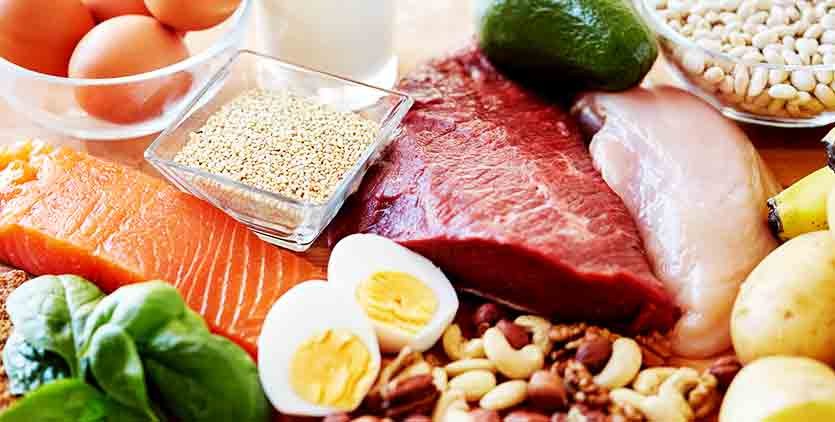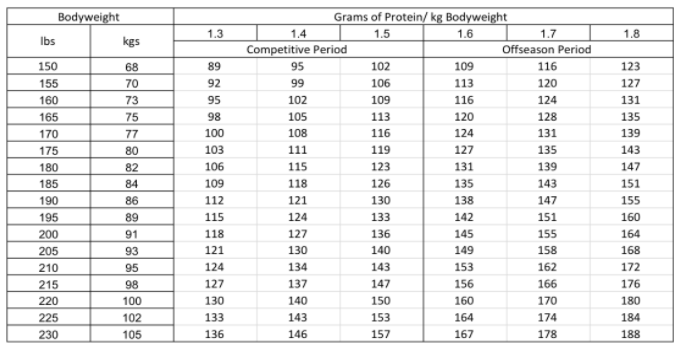Minimum Protein Needs Based on the Season

In our previous post, we laid the groundwork for understanding how much protein baseball athletes should consume. This time, we will determine the differing needs for macronutrients based on the time of the year and examine how best to consume adequate protein throughout the day. Let’s begin with the yearly plan for baseball players, looking at the season and off-season for professional athletes, college athletes, high school athletes, and gap year athletes.
- Pro: 7-month season and 3-month off-season (plus 2 months’ spring training)
- College: 4-month season and 8-month off-season
- High School: 2-month season and 10-month off-season (May have 3 month summer season as well)
- Gap Year: 12-month off-season
A reasonable belief is that during the season (competitive period), athletes require the most protein. This is not the case. The competitive period is actually when athletes require the least amount of protein. The most protein is required during the off-season, when their training volume is the highest. During the season, it is more important to focus on fueling athletic performance and eating only enough protein to support recovery and maintain the hard-earned muscle from the off-season. Athletes should eat the most protein during the off-season to support lean-muscle gain. Outlined below is the approximate grams of protein needed based on the period of training.
The two categories that are necessary to understand are the competitive period and off-season training period. The competitive period requires 1.3-1.5 grams of protein per kilogram of bodyweight. This is enough to fuel and recover from competition. The off-season training period is when there is less emphasis on sport-specific training and more on strength training and conditioning. During this type of training, it is important for athletes to eat between 1.6-1.8 grams of protein per kilogram of bodyweight. (The table converts pounds to kilograms, so you don’t have to do the math.)

For example, a 190-lb. (86 kg) athlete needs to eat 112-130 grams of protein during the season to maintain lean muscle and to recover from athletic competition. During the off-season, that same athlete needs to eat between 138-155 grams of protein per day to aid in recovery from heavy weight-training sessions. A sample meal plan is given below.
In the previous article, we discussed that there are different amino acids: essential and nonessential. It’s crucial to understand the importance of getting all 9 essential amino acids. Eating protein in the form of animal meat is the safest bet. Animal meats like steak, chicken and fish are packed with 2-3 grams of the amino acid leucine (and all 8 of the other essential amino acids). Leucine is critical for stimulating muscle-protein synthesis, which is how the body builds new lean mass and keeps the existing lean-muscle mass running optimally.
These numbers should be seen as minimums requirements for athletes, who can then adjust based off their response to their diet.
This article was written by Driveline Strength Trainer Gabe Juarez
Comment section